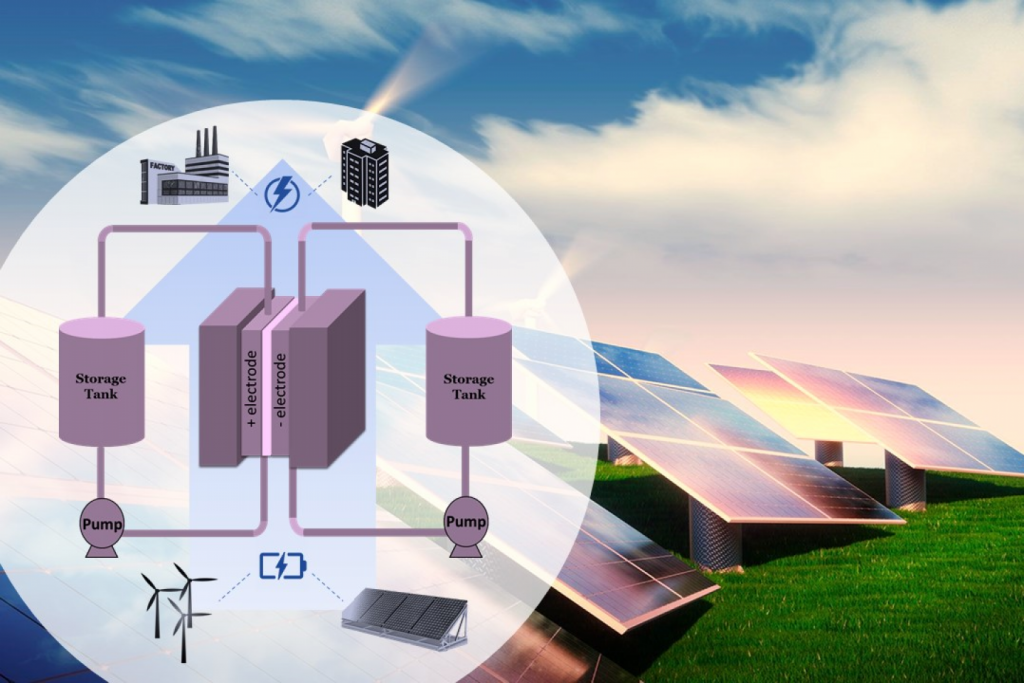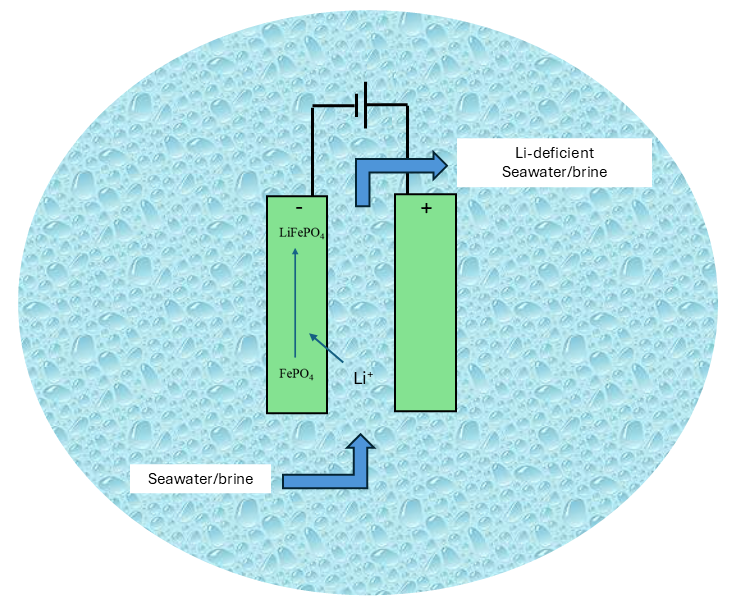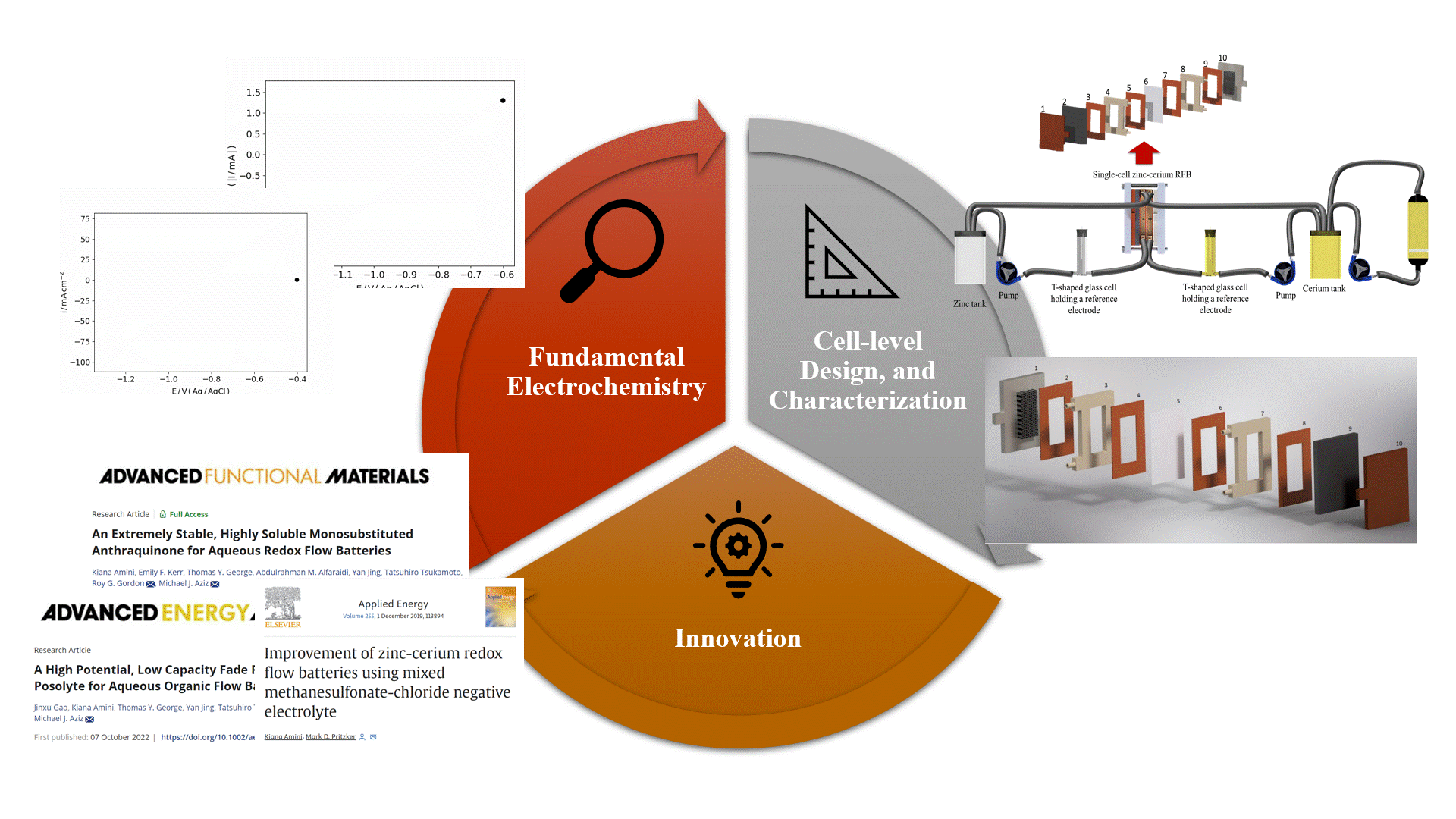We are interested in leveraging electrochemistry for the development of devices that can facilitate our transition to a cleaner energy future. Within this theme, our research has been focused on three key areas.
Redox Flow Batteries

Redox flow batteries (RFBs) are emerging as a critical technology for stabilizing power grids built on intermittent renewable energy sources like solar and wind. Because the sun doesn’t always shine and the wind doesn’t always blow, we need scalable storage systems that can reliably bridge these gaps, from hours to even seasonal durations. RFBs offer a compelling answer: they are safe, non-flammable, and capable of long-duration energy storage without the land or water demands of pumped hydro.
At the Amini Lab, we are accelerating the development of next-generation aqueous RFBs by pushing the limits of performance, reliability, and cost-effectiveness. Our team specializes in electrochemical analysis, battery architecture design, advanced electrolyte development, and real-time (in situ) diagnostic tools to understand and enhance battery behavior. We aim to bring this technology closer to wide-spread commercial reality.
Carbon Dioxide Capture

The world emits 35 to 40 gigatonnes of CO₂ into the atmosphere every year, yet current carbon capture efforts account for less than 0.1% of that total. To limit global warming to 1.5°C by 2050, experts estimate we need to remove up to 10 gigatonnes annually, a gap that underscores the urgent need for scalable carbon management solutions. This is especially critical for heavy industries like steel and cement production, where emissions are difficult to eliminate at the source.
At the Amini Lab, we are developing electrochemical systems designed to operate at ambient temperature and pressure, with the goal of minimizing energy requirements for CO₂ capture. By leveraging redox-active materials and tuning system conditions for real-world feasibility, we aim to create scalable solutions that are both energy-efficient and compatible with industrial applications. Our work also includes in situ tools to probe reaction mechanisms and evaluate system stability over time.
Lithium Extraction

Lithium is essential for clean technologies, powering everything from electric vehicles to large-scale energy storage. Yet current extraction methods, like solar evaporation, are slow, land-intensive, and unable to keep pace with global demand. Meanwhile, seawater contains over 200 billion metric tons of lithium, representing a vast and largely untapped source.
At the Amini Lab, we are developing electrochemical systems that can extract lithium directly from seawater and brine resources using renewable electricity. Our approach focuses on efficient separation, selective recovery, and system designs suited for real-world deployment. We also investigate long-term performance and material stability, working to unlock lithium supplies that are both sustainable and scalable.
Research Methodology
